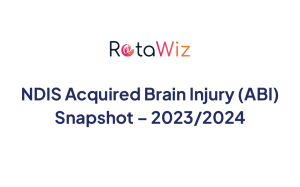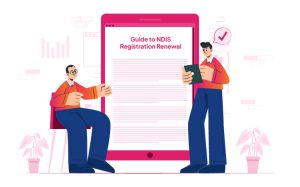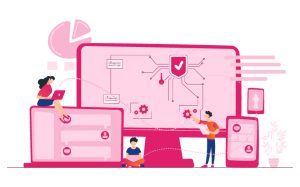2 December, 2024
Common Myths and Misconceptions About the NDIS Fact vs. Fiction
NDIS
3 min read

The National Disability Insurance Scheme (NDIS) has become a cornerstone of support for Australians with disabilities, empowering them to lead independent and fulfilling lives. Designed to address diverse needs, the NDIS provides personalized assistance to help individuals achieve their goals. However, the scheme is often misunderstood, with myths and misconceptions clouding its purpose and functionality. In this blog, we’ll debunk the most common myths about the NDIS, explore the facts, and discuss how leveraging innovative tools like RotaWiz can help participants and service providers navigate the system effectively.
1. Myth: The NDIS Only Supports Physical Disabilities
Fact: The NDIS caters to a wide range of disabilities, including intellectual, sensory, cognitive, and psychosocial disabilities. Eligibility is based on the impact of the disability on daily life, not just its type.
2. Myth: You Need to Be Unemployed to Qualify
Fact: Employment status or financial assets have no bearing on NDIS eligibility. The scheme focuses solely on the extent to which a disability affects daily functioning.
3. Myth: NDIS Funding Covers All Personal Expenses
Fact: While the NDIS funds disability-related supports, it does not cover general personal expenses like holidays, meals, or accommodation. However, necessary supports required during a trip, such as accessible transport, may be funded.
4. Myth: The NDIS Doesn’t Support Mental Health Conditions
Fact: The NDIS provides support for individuals with psychosocial disabilities caused by mental health conditions. However, it does not cover treatments such as therapy or medication, which fall under other healthcare programs.
5. Myth: NDIS Plans Are Fixed and Cannot Be Changed
Fact: NDIS plans are highly flexible and designed to adapt to the participant’s evolving needs. Participants can request reviews to modify their plans based on changing circumstances, ensuring their supports remain relevant.
6. Myth: Participants Must Use Only Registered Providers
Fact: Depending on the type of plan management, participants may choose to work with both registered and unregistered providers. This flexibility empowers participants to select the services that best meet their needs.
7. Myth: The NDIS Replaces Other Support Systems
Fact: The NDIS operates independently of other programs like the Disability Support Pension (DSP), and participants can access both simultaneously.
8. Myth: The NDIS Covers All Disability-Related Costs
Fact: The NDIS does not cover certain expenses, such as medication, which is the responsibility of healthcare services like Medicare. The scheme focuses on funding supports and services directly related to a participant’s disability needs.
End Note
The National Disability Insurance Scheme (NDIS) is a vital resource for many Australians, but myths and misconceptions often hinder its potential. By understanding the facts, participants can unlock the full range of supports available to them, and providers can deliver care with confidence.
The right tools, such as RotaWiz, play a pivotal role in this journey, bridging the gap between complex administrative tasks and the meaningful delivery of care. To learn more about how RotaWiz can transform your NDIS experience, visit Our Website.

Imagine a world where disability services are readily accessible, customised to meet the needs of every individual, and supported by the latest technological advances. This objective has become a reality in Australia with the establishment of the National Disability Insurance Scheme (NDIS), which has completely changed how disability services are provided.
. . .


